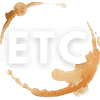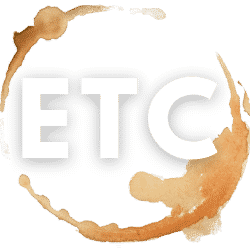Embracing Kaizen: How Executive Coaching Catalyze Transformative Change

Executive Coaching with Mel Reyes
In the realm of personal and professional development, the philosophy of Kaizen, which means "good change," "improvement," and now "continuous improvement," with its roots in Japanese manufacturing, presents a robust framework for achieving sustained improvement with Executive Coaching. This methodology, centered on making small, continuous changes, can be particularly effective when applied by executive coaches to facilitate transformative change in their clients. By focusing on incremental progress, coaches can help individuals overcome limiting beliefs, champion their lives, elevate their teams, and foster a culture of continuous improvement. This article explores practical examples of how executive coaches can leverage Kaizen techniques to drive meaningful change, supported by scientific references.
Breaking Down Limiting Beliefs with Incremental Steps with Executive Coaching
Limiting beliefs act as a barrier to personal growth and professional success. An executive coach using Kaizen techniques can address these beliefs through small, manageable interventions. By encouraging clients to set minor, achievable goals, coaches can help them experience success and gradually shift their mindset. This approach aligns with the principles of cognitive-behavioral therapy (CBT), which suggests that small behavioral changes can lead to significant shifts in beliefs and attitudes (Beck, 1979). For instance, a coach might work with a client to identify a limiting belief and devise a series of small, actionable steps to challenge and reframe that belief over time.

Executive Coaching with Mel Reyes
Limiting beliefs are self-imposed constraints that prevent individuals from realizing their full potential. An executive coach using Kaizen techniques can guide clients through a process of identifying, challenging, and replacing these beliefs with empowering ones. This process often involves small, incremental steps that build upon each other, leading to substantial change over time.
For instance, coaches can employ the "five whys" technique, which Sakichi Toyoda developed. This technique involves asking "why" five times to get to the root cause of a problem or belief (Ohno, 1988). By applying this technique, coaches can help clients uncover the underlying beliefs that hinder their progress and work on actionable steps to overcome them.
Championing Lives Through Continuous Self-Reflection with Executive Coaching
Kaizen also emphasizes the importance of continuous self-reflection and learning. Executive coaches can facilitate this by introducing daily or weekly reflection sessions, where clients assess their progress, setbacks, and learnings. This practice can help individuals become more self-aware and proactive in their personal development. According to Schön (1983), reflective practice is crucial for professionals to understand their actions and improve their effectiveness. Coaches might encourage clients to keep a journal or use apps designed for reflection, thereby integrating Kaizen's principles of continuous improvement into their daily routines.
Kaizen also emphasizes the importance of personal development as a continuous journey. Executive coaches can champion their clients' lives by setting small, achievable goals that lead to significant life improvements. This approach aligns with Locke and Latham's (2002) research, which found that setting specific and challenging goals leads to higher performance.
By integrating Kaizen's principles, coaches can help clients develop a growth mindset, as described by Carol Dweck (2006), which views challenges and failures as insurmountable barriers and opportunities for growth and learning.

Executive Coaching with Mel Reyes
Elevating Teams with Collaborative Improvement with Executive Coaching
In a team context, Kaizen encourages collective responsibility for improvement. Executive coaches can apply this by fostering a culture of open communication and collaborative problem-solving within teams. By facilitating regular team meetings focused on identifying small areas for improvement, coaches can help teams adopt a Kaizen mindset. Research on team dynamics underscores the value of such an approach, indicating that teams engaging in continuous, incremental improvements report higher levels of innovation and performance (Edmondson, 1999). Coaches might use tools like the Plan-Do-Check-Act (PDCA) cycle to guide teams through setting and achieving small improvement goals.
Kaizen's approach to continuous improvement can be applied to team dynamics and performance. Executive coaches can work with leaders to cultivate a culture of continuous improvement within their teams. This involves encouraging open communication, fostering a supportive feedback environment, and setting small goals for improvement.
Research by Edmondson (1999) highlights the importance of psychological safety in teams, which allows team members to feel safe to take risks and express their thoughts and ideas. By fostering this environment, coaches can help teams embrace Kaizen principles, enhancing collaboration, innovation, and performance.
Making Incremental Improvements Every Day with
The essence of Kaizen lies in the commitment to making minor, daily improvements. Executive coaches can instill this discipline in their clients by helping them establish routines and habits that promote ongoing growth. This could involve setting daily challenges, reflecting on daily achievements and areas for improvement, or adopting new habits that support their goals. The literature on habit formation suggests that small, consistent actions can lead to significant behavioral changes over time (Lally et al., 2010). Coaches can support clients in identifying essential habits that align with their goals and develop strategies to integrate them into their daily lives.
This approach is supported by Duhigg (2012), who emphasizes the role of habits in achieving long-term goals. Individuals can create powerful habits that lead to lasting improvements by focusing on small, actionable changes.
Conclusion
Kaizen offers a potent framework for executive coaching, emphasizing the power of incremental changes for achieving substantial transformations. By applying Kaizen techniques, executive coaches can help their clients drive and overcome limiting beliefs, champion their lives and careers, elevate their teams, and embrace the philosophy of continuous improvement in their daily lives. This approach, grounded in scientific research, highlights the power of small, incremental steps in achieving lasting success. Through this process, the principles of Kaizen become not just a methodology for improvement but a way of life that fosters resilience, growth, and excellence.
If you want to explore further how executive coaching and Kaizen techniques can transform personal and professional development, consider engaging with Coach Mel, a certified executive coach specializing in these methodologies with decades of Kaizen, Agile, and behavioral improvement experience.
By embracing Kaizen, executive coaches, and their clients can embark on a journey of continuous improvement, where every small step forward contributes to larger goals and transformative change.
Ask yourself, "Why can't I take the next step?" and let's start your journey!
References
- Ohno, T. (1988). Toyota Production System: Beyond Large-Scale Production. Productivity Press.
- Locke, E.A., & Latham, G.P. (2002). Building a practically useful theory of goal setting and task motivation: A 35-year odyssey. American Psychologist.
- Dweck, C. (2006). Mindset: The New Psychology of Success. Random House.
- Edmondson, A. (1999). Psychological Safety and Learning Behavior in Work Teams. Administrative Science Quarterly.
- Duhigg, C. (2012). The Power of Habit: Why We Do What We Do in Life and Business. Random House.
- Beck, A. T. (1979). Cognitive Therapy and the Emotional Disorders. Meridian.
- Schön, D. A. (1983). The Reflective Practitioner: How Professionals Think in Action. Basic Books.
- Edmondson, A. (1999). "Psychological Safety and Learning Behavior in Work Teams." Administrative Science Quarterly, 44(2), 350-383.
- Lally, P., Van Jaarsveld, C. H. M., Potts, H. W. W., & Wardle, J. (2010). "How are habits formed: Modelling habit formation in the real world." European Journal of Social Psychology, 40(6), 998-1009.
Core services: Keynote Speaker, Personalized Executive Coaching, Group Masterminds Sessions, and Executive Leadership Training



 Executive Coaching & Accountability Sessions
Executive Coaching & Accountability Sessions